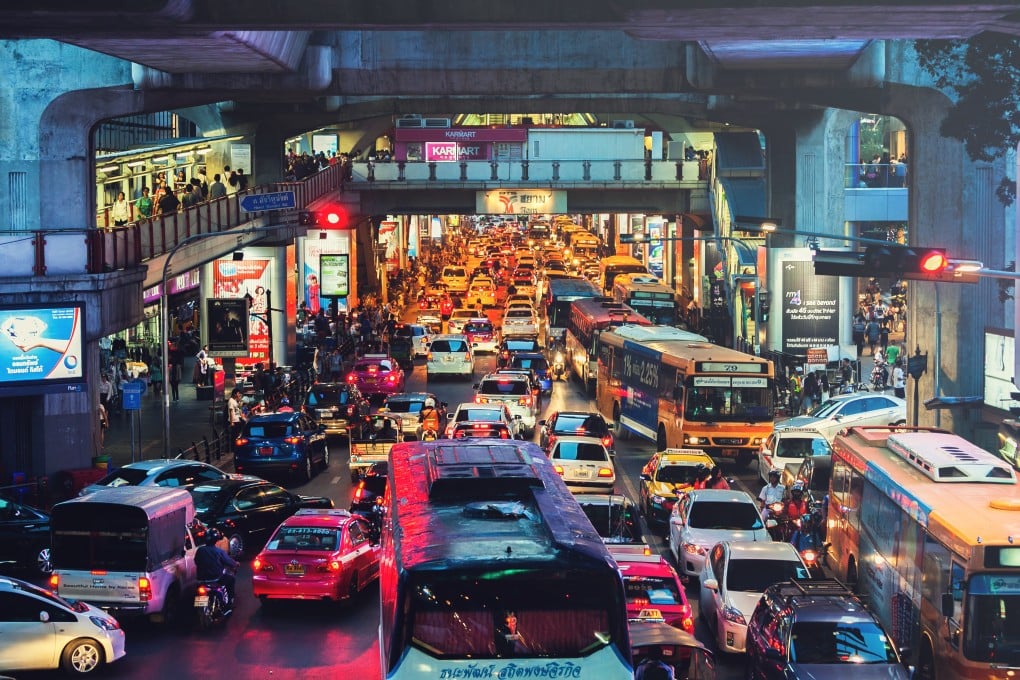Chinese and Thai researchers work together to solve traffic woes
- Data analysis and real-time computing help in tackling big cities’ congestion problems
- Compulsory installation of location trackers in commercial vehicles makes Thai roads safer

In the world of transport, scientists share a common mathematical language to solve traffic problems in major cities through data analysis and real-time computing.
That is how Agachai Sumalee – a professor at the school of integrated innovation at Chulalongkorn University in Bangkok – works with Chinese peers in Wuhan, Guangzhou and Shenzhen to help drivers make better decisions on the road.
“We have the mathematical language which transcends borders,” he said in an interview in Bangkok. “If you talk about a specific problem in Guangzhou, it’s different compared to Bangkok of course. But when we look at the format of the network set-up, data analysis and modelling, it becomes more or less the same.”
The Thai capital ranked 11th on a 2019 global congestion index by Dutch navigation device maker TomTom, which added that Bangkok residents spent an average of eight days and 14 hours in rush hour traffic that pre-pandemic year.